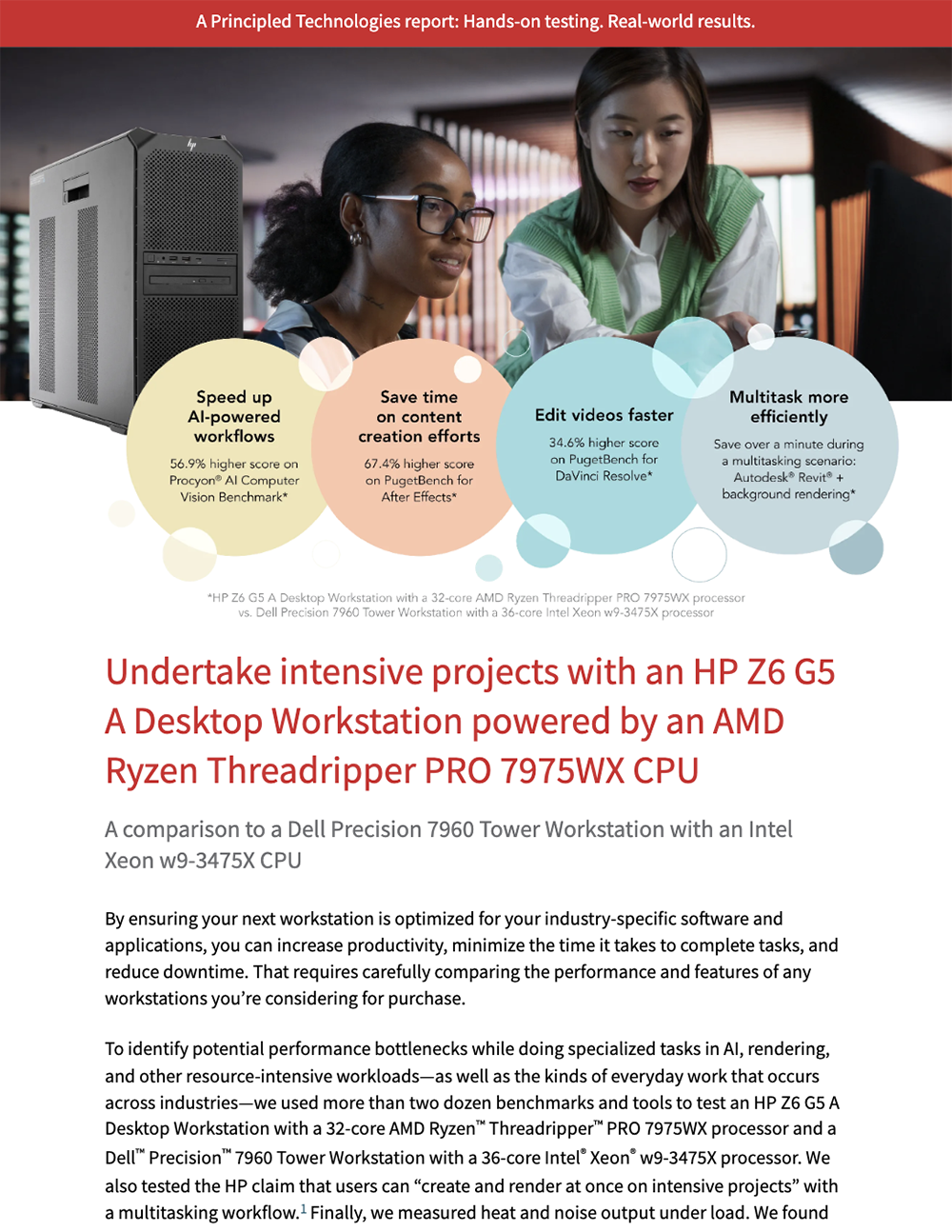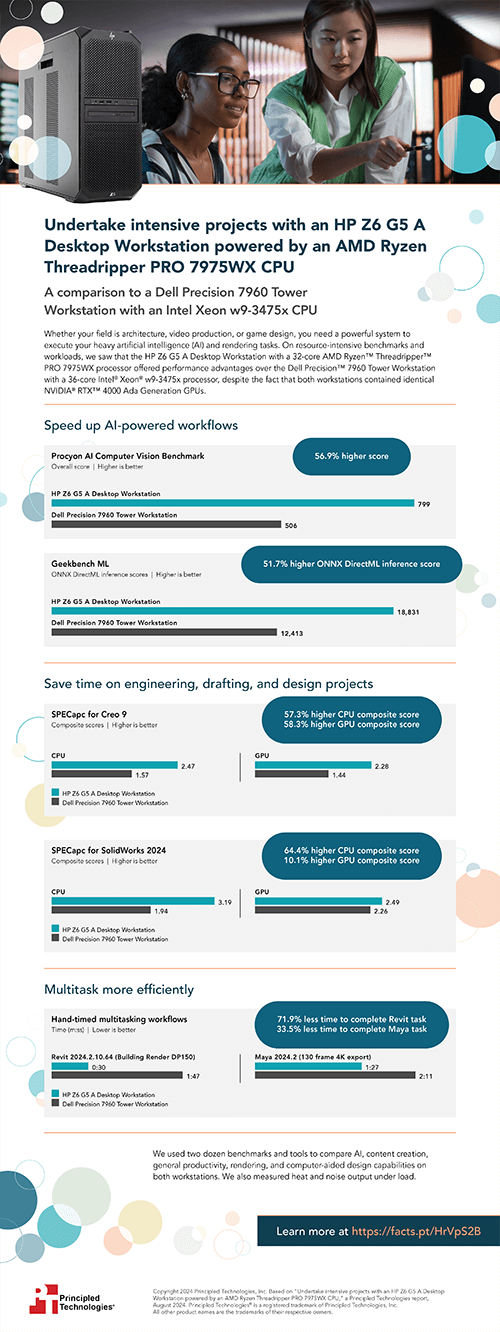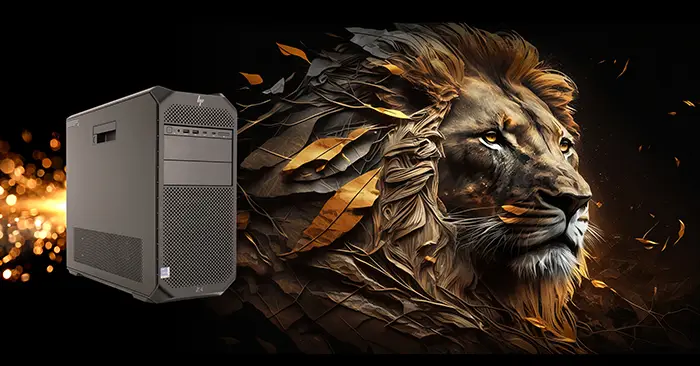
In the modern economy, high-powered computer workstations serve as the workhorses of many design teams, engineering firms, and multimedia studios—equipping creators and technical experts with the processing power they need to innovate, iterate, and stay on the cutting edge. But the pace of technological change is accelerating, and in many industries, keeping up may require new hardware that can cycle through demanding AI workloads, complex rendering, high-resolution content, and more without slowdowns. Equipping your team with powerful workstations can accelerate the time between ideas and implementations, enabling you to get and stay ahead.
We used more than two dozen different tools and benchmarks to test and compare the performance of an HP Z6 G5 A Desktop Workstation powered by an AMD Ryzen Threadripper PRO 7975WX processor to a Dell Precision 7960 Tower Workstation powered by an Intel Xeon w9-3475X processor. We equipped both workstations with an NVIDIA RTX 4000 Ada Generation GPU and 128 GB of RAM. We set Windows Power Mode on each system to “Best Performance.”
Some of our tests measured how well each system handled AI workloads, content creation tasks, and heavy visual workloads—such as 3D models and image rendering—while others focused on everyday productivity. We also tested how well the systems performed in a resource-intensive multitasking scenario. Finally, we measured each workstation’s heat and noise output under load.
We found that the AMD Ryzen Threadripper PRO 7975WX processor-powered HP Z6 G5 A delivered stronger performance than the Intel-powered Dell Precision system we tested on AI, content creation, rendering, and other heavy workloads. The Z6 G5 also saved time on our heavy multitasking workflow, indicating that it can be a strong choice to help your team power through demanding future tasks.
To see more detail about our HP ZBook and Dell Precision mobile workstation comparison tests, check out the report and infographic below.
Principled Technologies is more than a name: Those two words power all we do. Our principles are our north star, determining the way we work with you, treat our staff, and run our business. And in every area, technologies drive our business, inspire us to innovate, and remind us that new approaches are always possible.







